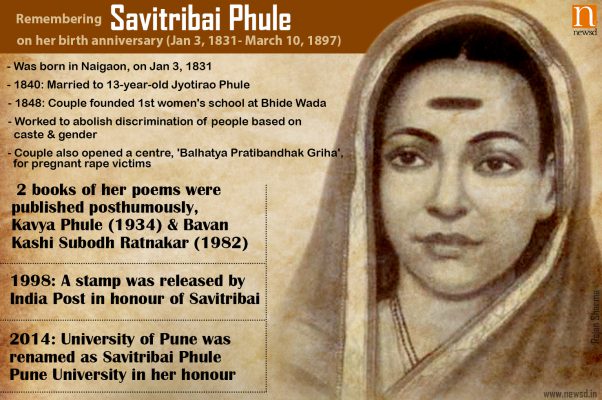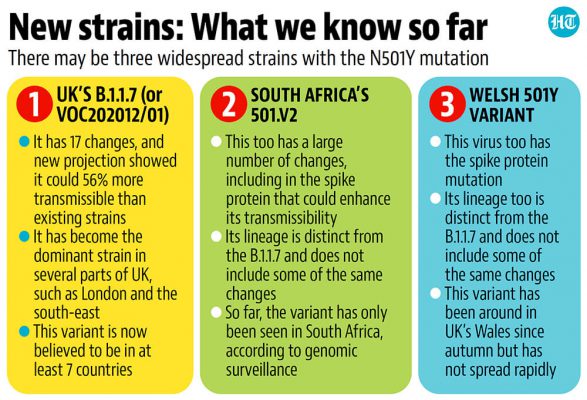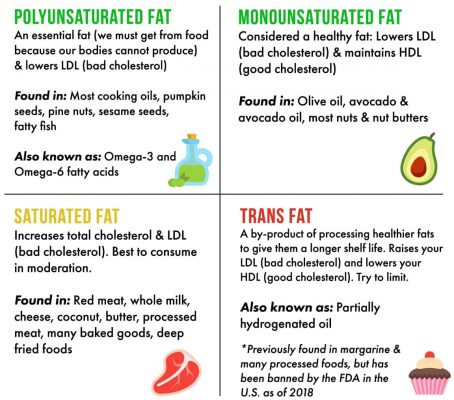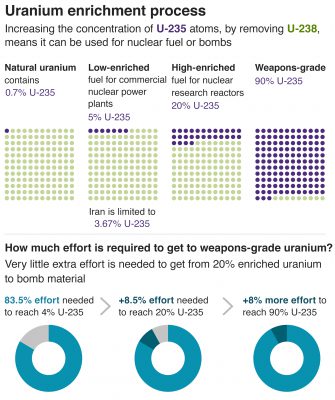- Home
- Prelims
- Mains
- Current Affairs
- Study Materials
- Test Series
4th January 2021
Kochi-Mangaluru Natural Gas Pipeline
Recently, the Prime Minister has decided to dedicate the Kochi-Mangaluru Natural Gas Pipeline to the nation.
Kochi-Mangaluru Natural Gas Pipeline
 Recently, the 190th birth anniversary of Savitribai Phule was celebrated in Maharashtra as Balika Din.
Recently, the 190th birth anniversary of Savitribai Phule was celebrated in Maharashtra as Balika Din.
 Recently, the Indian Council of Medical Research (ICMR) has said that India has successfully cultured the new coronavirus strain, which originated in the UK.
Recently, the Indian Council of Medical Research (ICMR) has said that India has successfully cultured the new coronavirus strain, which originated in the UK.
 Recently, the Food Safety & Standards Authority of India (FSSAI) has made an amendment to the Food Safety and Standards (Prohibition and Restriction on Sales) Regulations citing reduction in trans fatty acid levels.
Recently, the Food Safety & Standards Authority of India (FSSAI) has made an amendment to the Food Safety and Standards (Prohibition and Restriction on Sales) Regulations citing reduction in trans fatty acid levels.
 Recently, Iran has informed the International Atomic Energy Agency (IAEA) that it intends to produce uranium enriched to up to 20% purity.
Key Highlights
Recently, Iran has informed the International Atomic Energy Agency (IAEA) that it intends to produce uranium enriched to up to 20% purity.
Key Highlights
- It is a 450 km long pipeline which has been built by GAIL (India) Ltd.
- It has transportation capacity of 12 Million Metric Standard Cubic Metres per day.
- It will carry natural gas from the Liquefied Natural Gas (LNG) Regasification Terminal at Kochi (Kerala) to Mangaluru (Dakshina Kannada district, Karnataka), while passing through Ernakulam, Thrissur, Palakkad, Mallapuram, Kozhikode, Kannur and Kasaragod districts.
- The pipeline will supply environment friendly and affordable fuel in the form of Piped Natural Gas (PNG) to households and Compressed Natural Gas (CNG) to the transportation sector.
- It was inaugurated by Prime Minister in 2018 in Varanasi.
- The first phase of the Pradhan Mantri Urja Ganga (PMUG) project was commissioned by GAIL India Ltd taking natural gas to cities in eastern Uttar Pradesh and Bihar.
- It is a 2,655-km long gas pipeline worth Rs 12,940 crore from Jagdishpur in UP to Haldia in West Bengal, with branch lines to Bokaro in Jharkhand and Dhamra in Odisha.
- The project will not just supply CNG to automobiles and cooking gas to household kitchens in cities along the route, but also to industries to meet their feedstock or fuel requirement.
 Recently, the 190th birth anniversary of Savitribai Phule was celebrated in Maharashtra as Balika Din.
Recently, the 190th birth anniversary of Savitribai Phule was celebrated in Maharashtra as Balika Din.
- Krantijyoti Savitribai Phule was born on January 3, 1831, in a village called Naigaon in the Satara district of Maharashtra.
- She was a feminist and social reformer who fought for women’s empowerment and education in India.
- She started the first-ever school for girls in the country in 1848 at Bhide Wada, Pune.
- She also fought against social injustices of the time like Sati, child marriage and the still prevalent caste system.
- She opened a well for ‘untouchables’ at her residence in a defiant act against the caste system and also started a care centre for pregnant rape victims called ‘Balhatya Pratibandhak Griha’.
- She set up a ‘Mahila Seva Mandal’ where women would gather and she would raise awareness about women’s rights.
- In 1873, Savitribai Phule and Jyotiba Phule set up Satya Shodhaka Samaja, a platform which was open to all, irrespective of their caste, religion or class hierarchies, with the sole motto to bring about social equity.
- They started ‘Satya Shodhaka Marriage’ where the marrying couple has to take a pledge to promote education and equality.
- The UK was a part of the EU, where period products such as sanitary napkins and tampons are classified as non-essential, and member states are required to levy a 5 per cent tax on them.
- The UK is out of the 27-member bloc and it is not bound by its directives, under which sanitary products had been subjected to five different VAT rates since 1973.
- In 2001, the British government led by the Labour Party had moved sanitary products to the 5 per cent tax slab, which was the lowest possible rate under EU regulations.
- In 2015, the Conservative Party government had established a ‘Tampon Tax Fund’ which allocated the funds generated from VAT on period products to projects supporting vulnerable women and girls.
- Tampon Tax is a 5 per cent Value Added Tax (VAT) on women’s sanitary products.
- UK now joins the list of countries which have already eliminated this tax, which includes India, Australia and Canada.
- It is part of a wider UK government effort called ‘End Period Poverty’.
- The British government has estimated that the move to abolish the tampon tax would save the average woman about 40 pounds during her lifetime.
- The main argument made against taxing menstrual hygiene products is that it is unfair and inequitable because they are necessities in today’s society.
- The other main argument made in favor of repealing tampon taxes is that it would increase the affordability (and thus accessibility) of menstrual hygiene products by lowering consumer prices.
- The benefit of RoDTEP would be available subject to the conditions, restriction, exclusions, ineligibility and fulfilment of the procedural requirements as notified by the government.
- The Cabinet Committee on Economic Affairs has approved the introduction of scheme of Remission of Duties and Taxes on Exported Products (RoDTEP) in March 2020.
- It is a WTO-compliant scheme for reimbursement of taxes and duties and would replace the existing scrip-based scheme.
- An Inter-Ministerial Committee will be responsible for the determination of rates and items for which the reimbursement of taxes and duties would be provided.
- The annual savings of Rs 40,000 crore be utilised to roll out production-linked incentive (PLI) schemes in “sectors of strength to create global champions”, once the RoDTEP scheme replaces the MEIS, .
- It will enhance the contribution of Indian exports in the international markets.
- The scheme will be implemented with end to end digitization.
- The refunds under the RoDTEP scheme would be a step towards “zero-rating” of exports, along with refunds such as Drawback and IGST.
- It will enhance the employment opportunities in the export oriented manufacturing industries.
- Certain taxes/duties/levies are outside the purview of GST, such as, VAT on fuel used in transportation, Mandi tax, Duty on electricity used during manufacturing and are not refunded for exports as these would be covered for reimbursement under the RoDTEP Scheme.
- When the rates under the RoDTEP Scheme are announced for a tariff line or item, the Merchandise Exports from India Scheme (MEIS) benefits on such tariff line or item will be discontinued.
 Recently, the Indian Council of Medical Research (ICMR) has said that India has successfully cultured the new coronavirus strain, which originated in the UK.
Recently, the Indian Council of Medical Research (ICMR) has said that India has successfully cultured the new coronavirus strain, which originated in the UK.
- The ICMR has claimed that in order to culture the UK variant of the virus the IMCR-NIV scientists used Vero cell lines.
- SARS-CoV-2 the virus causing COVID-19 was being tracked through countrywide network of ICMR-laboratories since the early days of the epidemic in India.
- Viral culture is a laboratory technique in which cells are grown under controlled conditions, generally outside their natural environment.
- The variant was identified in genomic surveillance by COVID-19 Genomics UK (COG-UK).
- The variant is the result of multiple mutations in the spike protein of the novel coronavirus SARS-CoV-2, as well as mutations in other genomic regions of the RNA virus.
- The COG-UK identified one of these mutations as “N501Y”, in an area of the spike protein that binds to a key protein in the human cell, the ACE2 receptor.
- The data from whole-genome sequencing, epidemiology and modelling suggests that the new variant “transmits more easily than other strains”.
- The Public Health England (PHE) emphasised that there is “no evidence” that the variant is more likely to cause severe disease or mortality.
- The evidence shows that infection rates in geographical areas where this particular strain has been circulating have increased faster than expected.
 Recently, the Food Safety & Standards Authority of India (FSSAI) has made an amendment to the Food Safety and Standards (Prohibition and Restriction on Sales) Regulations citing reduction in trans fatty acid levels.
Recently, the Food Safety & Standards Authority of India (FSSAI) has made an amendment to the Food Safety and Standards (Prohibition and Restriction on Sales) Regulations citing reduction in trans fatty acid levels.
- The FSSAI rule comes at the time of a pandemic where the burden of non-communicable diseases has risen.
- It was in 2011 that India first passed a regulation that set a TFA limit of 10% in oils and fats, which was further reduced to 5% in 2015.
- The FSSAI has capped the amount of trans fatty acids (TFA) in oils and fats to 3% for 2021 and 2% by 2022 from the current permissible limit of 5%.
- The revised regulation applies to edible refined oils, vanaspati (partially hydrogenated oils), margarine, bakery shortenings, and other mediums of cooking such as vegetable fat spreads and mixed fat spreads.
- Trans Fat is a food toxin which present in partially hydrogenated vegetable oils, baked and fried foods.
- Trans Fat or trans-fatty acids are a form of unsaturated fat which come in both natural and artificial forms.
- The Natural or ruminant Trans fats occur in the meat and dairy from ruminant animals, such as cattle, sheep, and goats and they form naturally when bacteria in these animals’ stomachs digest grass.
- The people consuming Trans Fats instead of other fats or carbs experienced a significant increase in LDL (bad) cholesterol without a corresponding rise in HDL (good) cholesterol.
- The replacement of other dietary fats with Trans Fats significantly increases the ratio of total to HDL (good) cholesterol and negatively affects lipoproteins, both of which are important risk factors for heart disease.
- Trans Fats are believed to damage the inner lining of person's blood vessels, known as the endothelium.
- Trans Fats also contribute to insulin resistance and thus elevate the risk of developing type 2 diabetes.
- It is a major contributor to the rise in non-communicable diseases in India.
- Trans Fat is a modifiable risk factor for cardiovascular diseases.
- In 2018, the Food and Drug Administration (FDA) banned the use of partially hydrogenated oil in most processed foods.
 Recently, Iran has informed the International Atomic Energy Agency (IAEA) that it intends to produce uranium enriched to up to 20% purity.
Key Highlights
Recently, Iran has informed the International Atomic Energy Agency (IAEA) that it intends to produce uranium enriched to up to 20% purity.
Key Highlights
- The enrichment of uranium to up to 20% purity is well beyond the threshold set by the 2015 Vienna Accord.
- Iran has breached the deal’s 3.67% limit on the purity to which it can enrich uranium, but it has only gone up to 4.5% so far.
- The deal’s main aim was to extend the time Iran would need to produce enough fissile material for a nuclear bomb.
- The Vienna Declaration on Nuclear Safety has been unanimously adopted in 2015 by the Contracting Parties to the Convention on Nuclear Safety (CNS).
- The Declaration contains a series of principles to guide countries in the implementation of the objectives of the CNS.
- The objective is to achieve and maintain a high level of nuclear safety worldwidethrough the enhancement of national measures and international cooperation.
- India signed the international convention on compensating nuclear accident victims.
Additional Information
International Atomic Energy Agency (IAEA)
- It is the world's central intergovernmental forum for scientific and technical co-operation in the nuclear field.
- It works for the safe, secure and peaceful uses of nuclear science and technology, contributing to international peace and security and the United Nations' Sustainable Development Goals.
- It was created in 1957 in response to the deep fears and expectations generated by the discoveries and diverse uses of nuclear technology.









 Latest News
Latest News
 General Studies
General Studies